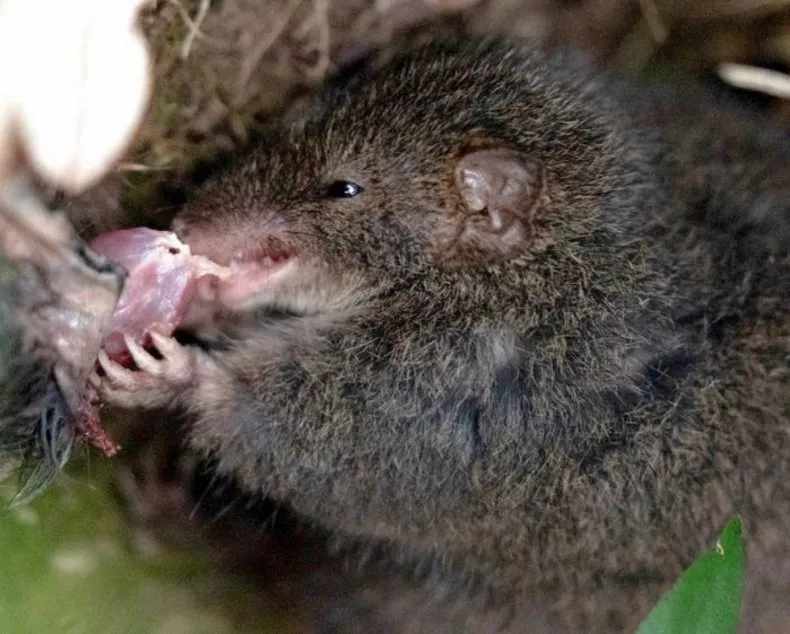Paramount fear of humans has been demonstrated to pervade wildlife communities in Africa, Asia, Europe and North America consistent with humans worldwide being a super predator, far more lethal than other predators.
Australian marsupials have been thought predator naïve based on responses to non-human predators.
“Our results greatly expand the growing experimental evidence that wildlife worldwide perceive humans as the planet’s most frightening predator,” said Western University’s Professor Liana Zanette, co-senior author of a paper published in the journal Proceedings of the Royal Society B.
“The very substantial fear of humans demonstrated here, and in comparable recent experiments, can be expected to have dramatic ecological consequences, because other new research has established that fear itself can reduce wildlife numbers, and fear of humans can cause cascading impacts on multiple species throughout entire landscapes.”
To conduct their experiments, Professor Zanette and her colleagues deployed hidden automated camera-speaker systems at Beaufront, a sheep grazing property in the Tasmanian Midlands.
The five species whose responses they quantified (eastern gray kangaroo, Bennett’s wallaby, Tasmanian pademelon, common brushtail possum and fallow deer) are the most common wild herbivores on the property.
When triggered by an animal passing within a short distance (approximately 10 m, or 30 feet), the cameras filmed the response to humans speaking calmly, dogs barking, Tasmanian devils snarling, wolves howling or non-threatening controls, such as sheep bleating.
Native marsupials fled significantly more often upon hearing humans compared to hearing the next most frightening predator (dogs), being more than twice as (2.4 times more) likely to flee from humans (44.3% versus 18.6% of trials).
These results present challenges for conservation but could also be used to manage native marsupials where they are overabundant.
“Global surveys show humans kill prey at much higher rates than other predators, making humans a ‘super predator,’ and the profound fear of humans being revealed in wildlife everywhere is wholly consistent with humanity’s unique lethality,” Professor Zanette said.
“Humans are the ‘invisible killer’ insofar as we do not often think of ourselves as a major predator, let alone the most dangerous, but wildlife clearly think differently — and recognize us for what we are.”
Citation:
Katherine McGann et al. 2024. Fear of the human ‘super predator’ in native marsupials and introduced deer in Australia. Proc. R. Soc. B 291 (2023): 20232849; doi: 10.1098/rspb.2023.2849
This article was first published by Sci-News on 23 May 2024. Lead Image: Recent experiments have demonstrated that carnivores and ungulates in Africa, Asia, Europe and North America fear the human ‘super predator’ far more than other predators. Australian mammals have been a focus of research on predator naiveté because it is suspected they show atypical responses. To experimentally test if mammals in Australia also most fear humans, McGann et al. quantified the responses of four native marsupials (eastern gray kangaroo, Bennett’s wallaby, Tasmanian pademelon, common brushtail possum) and introduced fallow deer to playbacks of predator (human, dog, Tasmanian devil, wolf) or non-predator control (sheep) vocalizations. Image credit: Pen_ash.
What you can do
Help to save wildlife by donating as little as $1 – It only takes a minute.




Leave a Reply